Nicole Ainsworth
I have been an Athletic Therapist for over 20 years and in that time I have worked with Athletes of all ages and levels of competition. I also enjoy working with the general population, helping to keep them healthy and active, and I do this out of Fortius Therapy. I love to work in the field, and can often be found on the sidelines of a football, rugby, or hockey game. I worked with Rugby Canada for over 10 years and was head therapist for the Women's 15's at the 2017 Rugby World Cup in Dublin. I work with Ernest Manning High School, the NWCAA, and as the medical coordinator for Calgary Jr Rugby as well as co-director for Rugby Alberta. When I find some free time I love to dance and go hiking in the mountains, as well as to spend time with my family when my teenagers will indulge me.
Athletic Therapy is a multifaceted discipline. We are not just therapists who work in a clinic setting but also trained first responders. You may not know what this means in terms of skill set, or scope of practice, or how it fits into the health paradigm. Read on for an overview of the important role Athletic Therapists play in Alberta’s healthcare system.
To enter into an Athletic Therapy program, all students have to complete their Canadian Red Cross First Responder certification. This is a 40-hour comprehensive program that teaches first aid and CPR skills for professional first responders or those training to become first responders. The course teaches the patient assessment model, cardiopulmonary resuscitation, hemorrhage control, and care for various acute and chronic conditions.
Athletic Therapists (AT) are on the sidelines of both professional sports teams as well as community sports. When you watch an NFL, NHL, CFL, or MLB game, the first person to hit the field is usually an AT; you would easily recognize them from their fanny packs! In most high-level organized community sports, teams will have an Athletic Therapist on their sidelines or benches. ATs are often the first line of defence for most teams, for both major events like cardiac arrests and minor events like sprained ankles.
Athletic Therapy has been around for a long time, but most people don’t know what we do or recognize us when they see us by the professional designation. We often get called “Trainers” but we are much more skilled than that. Our national association was formed in 1965 by therapists working with professional hockey and football teams. We are trained in pre-hospital emergency management, taping, concussion recognition, return-to-play decisions for athletes, and immediate care and rehabilitation of injuries.
Right now, the healthcare system in Alberta is under great strain, and the government is actively engaged in finding solutions. There are many different facets to the problem and so there will be many different solutions needed to tackle the issues. Athletic Therapists can play a role in one facet. For example, with our First Responder skills, we can help with some of the issues facing the EMS system, including:
- Requiring sports facilities to have an Athletic Therapist on staff to help manage injuries at their facilities so that ambulances don’t need to be called unnecessarily. This also provides someone able to manage emergency situations till the ambulance can get there, providing improved care when there is a prolonged wait.
- Mandating rules for sports associations that require teams to have a trained medical professional (like an AT) present at all games.
- Providing hallway medical supervision of hospital patients so Paramedics can leave and be available for another call.
The Alberta Athletic Therapists Association (AATA) is actively engaging with provincial and municipal governments to help educate them on the role ATs could play in improving healthcare and patient outcomes.
Do you manage a sports team or recreational facility and are interested in how an AT can help your organization? Contact an AT near you or reach out to AATA today.

